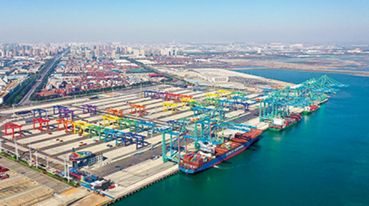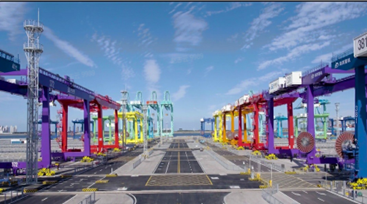
The first commercial use of unmanned container trucks at ports through autonomous driving technology.
The intelligent container terminal project of Section C of Beijiang Port Area of Tianjin Port is a key project to implement the important instructions of General Secretary Xi Jinping to "strive to build a world-class smart port and green port". It is also an important exploration of the strategic goal of "striving to exceed 30 million TEUs in container throughput by 2028, further consolidating the status of an international hub port, maintaining international leading service efficiency, and leading the world in smart port construction". It is the first time that unmanned container trucks have been commercialized in the port through autonomous driving technology, which has far-reaching significance for the automation transformation of traditional terminals. As Tianjin's "No. 0 Project" and a demonstration of Ping An's century-old quality project, it has been included in the key projects of the National 14th Five-Year Plan to "accelerate the construction of port and shipping facilities for a strong transportation country".
As the world's first container terminal that integrates intelligence, zero carbon, and full Internet of Things, it can meet the needs of the largest container ships . The project adopts the world's first new automated terminal technology of "single-car quay crane + ground unlocking station + horizontal yardside loading and unloading" to support the intelligentization of horizontal transportation in the port and pioneer the application of "Chinese wisdom" in ports. For horizontal shoreline terminals The automation transformation is of great significance to improve the operating efficiency of the entire terminal.
Production efficiency has repeatedly hit new highs, constantly breaking global records, and achieving significant economic benefits.
It has created a new benchmark for the port industry demonstration for the country and assisted the digital transformation and upgrading of ports.
Contributed to the "Tianjin Plan" that can be replicated and promoted for the construction of a new generation of intelligent container terminals.



